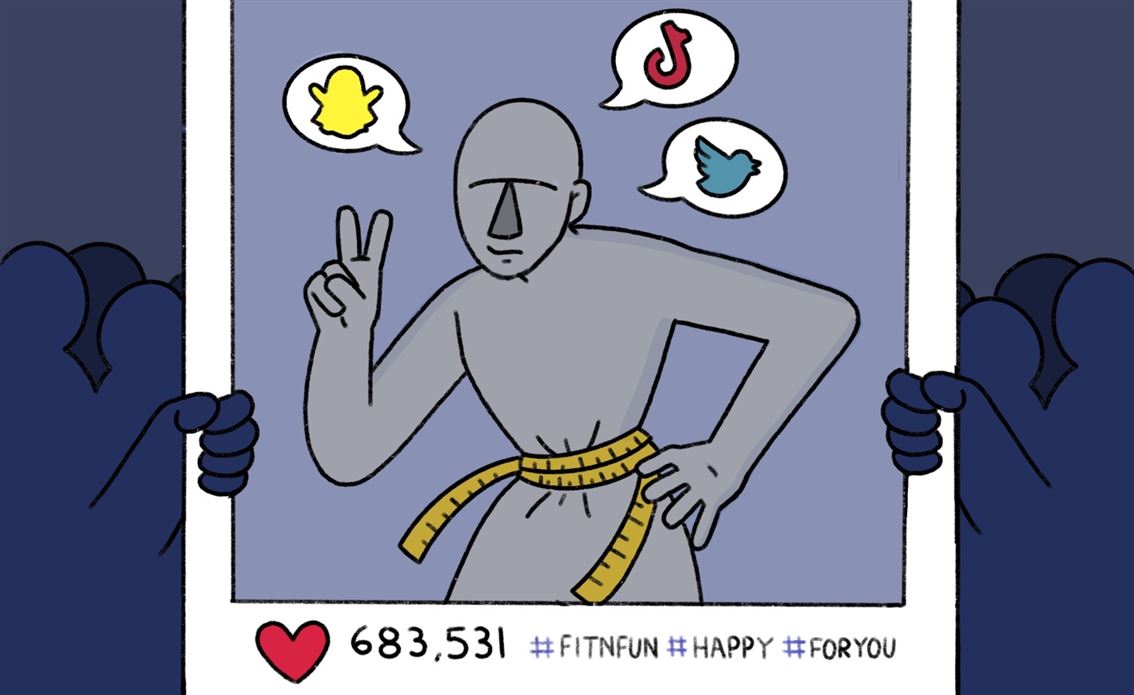Social networks have become a fundamental part of our daily lives, but we often forget the content we see on social media has a great influence on our behavior and our way of thinking about certain important issues.
This tool has also given us a kind of freedom we didn’t have before. Now, our opinions can be easily shared around the world in just seconds. This means a huge responsibility for the creators of this content regarding consistency, quality and the message a person sends to their audience.
Unfortunately, there’s a lot of content out there that gives false or unconfirmed information about certain aspects of nutrition, like false information about some foods and the right amounts to consume per day.
A lot of this content involves “magic recipes” that will supposedly make you lose weight in less than a month. In reality, these diets are mostly based only on vegetables and liquids, which is extremely unhealthy since your body isn’t receiving the proper amounts of nutrients it needs to function.
Above all, social media loves to promote the terror of calories. They put the fear of consuming calories in our heads as if they were our worst enemy when starting a diet.
Throughout this semester, I’ve heard several testimonials from friends and family members about the tough time they had during their weight loss process. But, what made that process more challenging for most was the influence of certain diet pages. These are Instagram and TikTok accounts that give advice on food recipes or diets which guarantee “the perfect body.”
Some time ago, I had a conversation with a friend about this same subject. In her experience, many of these accounts urge their followers to eat small portions of food or to avoid anything that has a significant amount of calories. This made her feel that she wasn’t doing enough to accomplish her goal.
False or baseless information shared on social media cannot only affect someone’s physical health but also their self-esteem and mental well-being by misleading someone to the point that they start to feel ashamed of themselves.
A lot of people might feel unmotivated after realizing the diet advice isn’t working for them. They may think something is wrong with their bodies, causing anxiety and stress.
I can personally identify with this feeling. You see, there was a time in my life when I started to feel uncomfortable with my body, so I decided to start a diet.
Three weeks had passed and I didn’t see any results. I started to get annoyed and automatically blamed myself for not being able to lose weight quickly, to the point of crying every day because I felt like a failure. I felt ashamed of my body.
Months later, thanks to good advice from friends and my parents, I realized my body was healthy, and there was nothing wrong with not losing weight right away. I learned my metabolism tends to be slower than other people’s, and that that is completely OK.
This might seem like an old and repetitive topic, and diets and body-shaming will always be very sensitive topics to talk about, but it’s necessary to bring up, again and again, to raise awareness around the issue.
Each person is different. One’s age, gender, metabolism and lifestyle are important aspects to take into account to achieve weight control goals. There is no single diet or particular food that can help everyone reach the same desired results in their bodies.
We should never have to normalize the act of starving ourselves or restricting ourselves from foods we genuinely enjoy eating. Nor do we have to commit to long hours of exercise until total exhaustion.
A diet doesn’t have to be a punishment. It can be a means of transformation and positive changes, both for your body and your mind. Be careful with social media diets, as we don’t know who’s behind our screens or what kind of experience they have or even if they have nutritional knowledge at all.
The best advice is and always will be to consult with a specialist nutritionist, since they can give you personalized help to achieve the results you want with your body.



